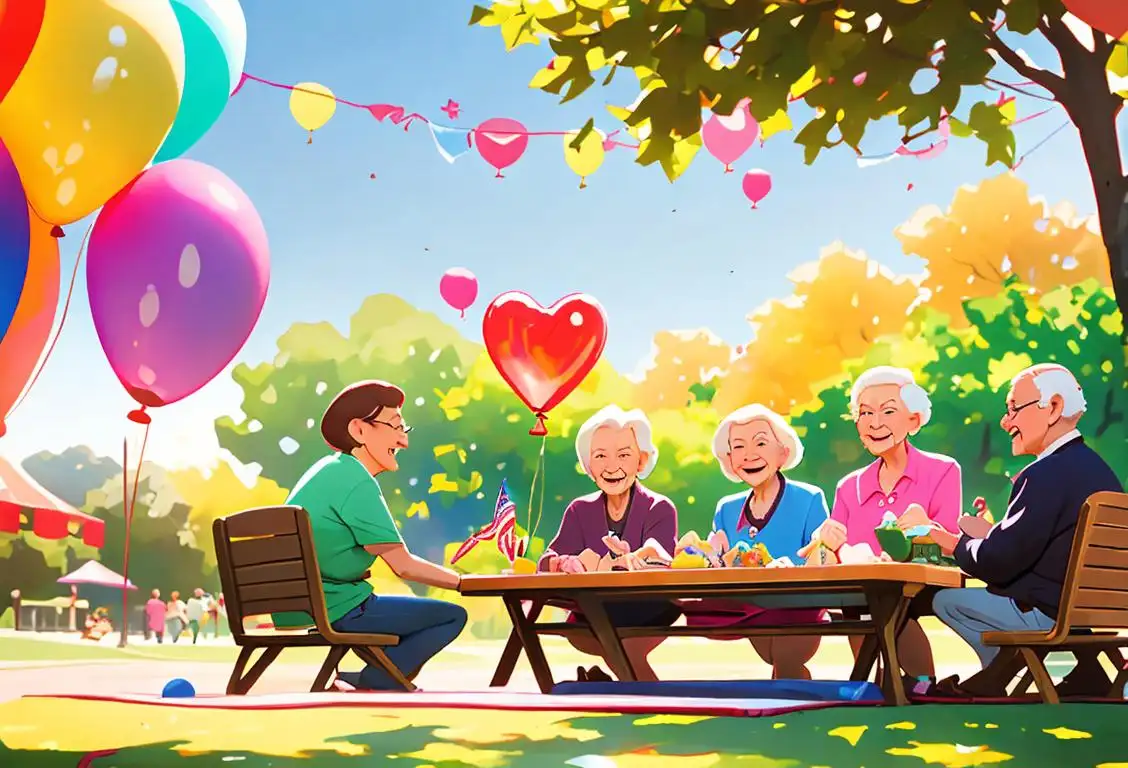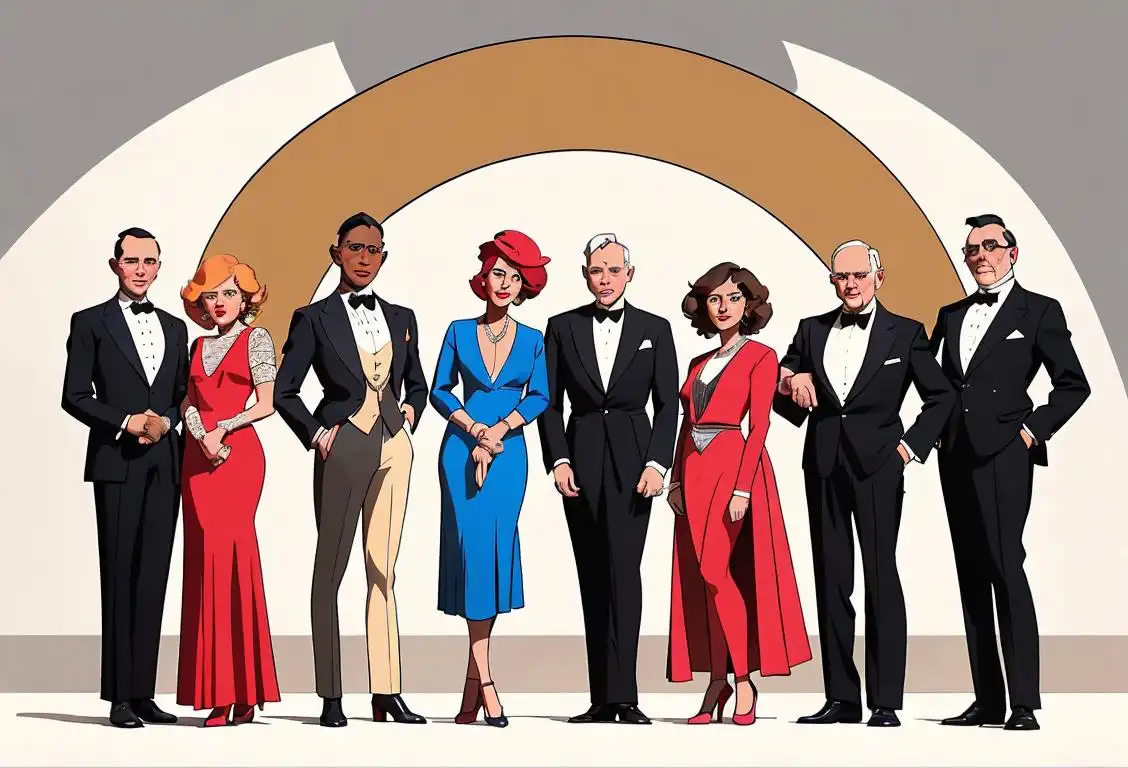National Wine Day

Have you ever wondered why there's an extravagant amount of bubbly and joyous merriment on that particular day near the end of May? You probably thought 'Have aliens landed?' or 'Did they declare pizza as the official planet food?' Close, but nope! That's the glorious National Wine Day we are talking about! It's the day when oenophiles (don't worry, that's just a fancy term for wine lovers) raise their goblets higher than usual. So grab your favorite bottle and read on, cause it's wine o'clock somewhere!
When is Wine Day?
It's national wine day on the 25th May.
History of National Wine Day
The origins of National Wine Day are as elusive as the exact recipe for the perfect bottle of Pinot Noir. Some conjecture that it was initiated by a group of passionate wine enthusiasts who wanted to have a day when they could shamelessly giggle like school children with each sip of their favorite red or white. Others stick to the less fanciful yet practical notion that it was started by the wine industry itself to boost sales and interest in the nectar of the gods.
Regardless of how it came about, it became rapidly popular going by online data. With a peak of 91973 mentions in 2016, National Wine Day has won the hearts of both casual sippers and devoted connoisseurs alike.
Reasons to Celebrate
So why has National Wine Day become such a beloved event? Many appreciate the day as a perfect excuse to lure friends over for a wine tasting, attend a local winery tour, or simply gulp down some Cabernet Sauvignon while cuddling on the couch with loved ones.
National Wine Day also brings a dash of sophistication to ordinary lives. Let's face it; talking about the 'earthy notes of a Bordeaux blend' does make you feel a little bit like a French sommelier!
What to do
Get set to swirl, sniff, and sip to your heart's content on 25 May. But remember, the fun is not reserved for wine aficionados alone. Even if you usually prefer beer or cocktails, why not leap out of your comfort zone and expand your palate? Who knows, you might just find your new favourite drink!
So, whether you're a fervent fan of a full-bodied Merlot, a devotee of delicate whites, or a dedicated rose champion, join in the annual celebration of good wines and good times. Cheers to National Wine Day!
History behind the term 'Wine'
6000 BCE
The birth of wine
The history of wine dates back to around 6000 BCE, when winemaking first appeared in the region of Mesopotamia, in what is now modern-day Iran and Georgia. The inhabitants of this region discovered that the juice of fermented grapes created a blissful, intoxicating beverage. They began cultivating and tending to grapevines, marking the birth of winemaking as we know it today.
3000 BCE
The Egyptians and the god of wine
Around 3000 BCE, the ancient Egyptians embraced wine culture. They believed that the god Osiris introduced the art of winemaking to humanity. Wine became an integral part of religious ceremonies and offerings. The Egyptians even had a god of wine, Hapi, who was associated with fertility and celebration.
800 BCE
Wine in Greek civilization
The ancient Greeks have had a significant impact on wine culture. By 800 BCE, wine had become an essential part of Greek society. They cultivated vineyards and established proper viticultural practices. Dionysus, the Greek god of wine, was celebrated with festivals and theatrical performances. Wine also played a central role in Greek symposiums, where philosophers, poets, and influential figures gathered to engage in intellectual discussions.
100 CE
Roman conquest and wine spread
With the expansion of the Roman Empire, the love for wine spread far and wide. The Romans were passionate about wine, and their conquests allowed vineyards to flourish across Europe. Wine became an integral part of Roman culture and was consumed by people of all social classes. Romans introduced barrel storage and improved winemaking techniques, such as aging wine in wooden casks.
1096 CE
Middle Ages and monastic influence
During the Middle Ages, wine production and consumption shifted to the monasteries. Monks played a crucial role in preserving viticulture knowledge and expanding vineyards. They improved winemaking techniques, including fermentation processes and vineyard management. Wine became a source of sustenance, both spiritually and physically, during this period.
17th Century
Wine meets the New World
In the 17th century, European settlers introduced grapevines to the New World, particularly to regions like South America, North America, and Australia. The climate and soil in these areas proved suitable for grape cultivation, leading to the establishment of thriving vineyards. This expansion significantly impacted the global wine industry and diversified its offerings.
20th Century
Modernization and global popularity
The 20th century witnessed advancements in winemaking technology, transportation, and trade routes, leading to the globalization of wine. Wine production spread to new regions, such as South Africa, New Zealand, and Chile. Different winemaking styles emerged, giving rise to a diverse range of wine flavors and varietals. Wine appreciation became a cultural phenomenon, celebrated in festivals, tours, and tasting events across the globe.
Did you know?
Did you know? One of the most expensive bottles of wine ever sold - a 1945 Romanee-Conti - went for an eye-watering $558,000!Tagged
awareness food fun loved ones celebration wineFirst identified
7th April 2015Most mentioned on
25th May 2016Total mentions
91973Other days
Wine Day
Wine And Cheese Day
Cheese Pizza Day
Senior Citizens Day
Charlotte Day
Burrito Day
Michael Day
Chocolate Cake Day
Bfs Day
Savage Day







